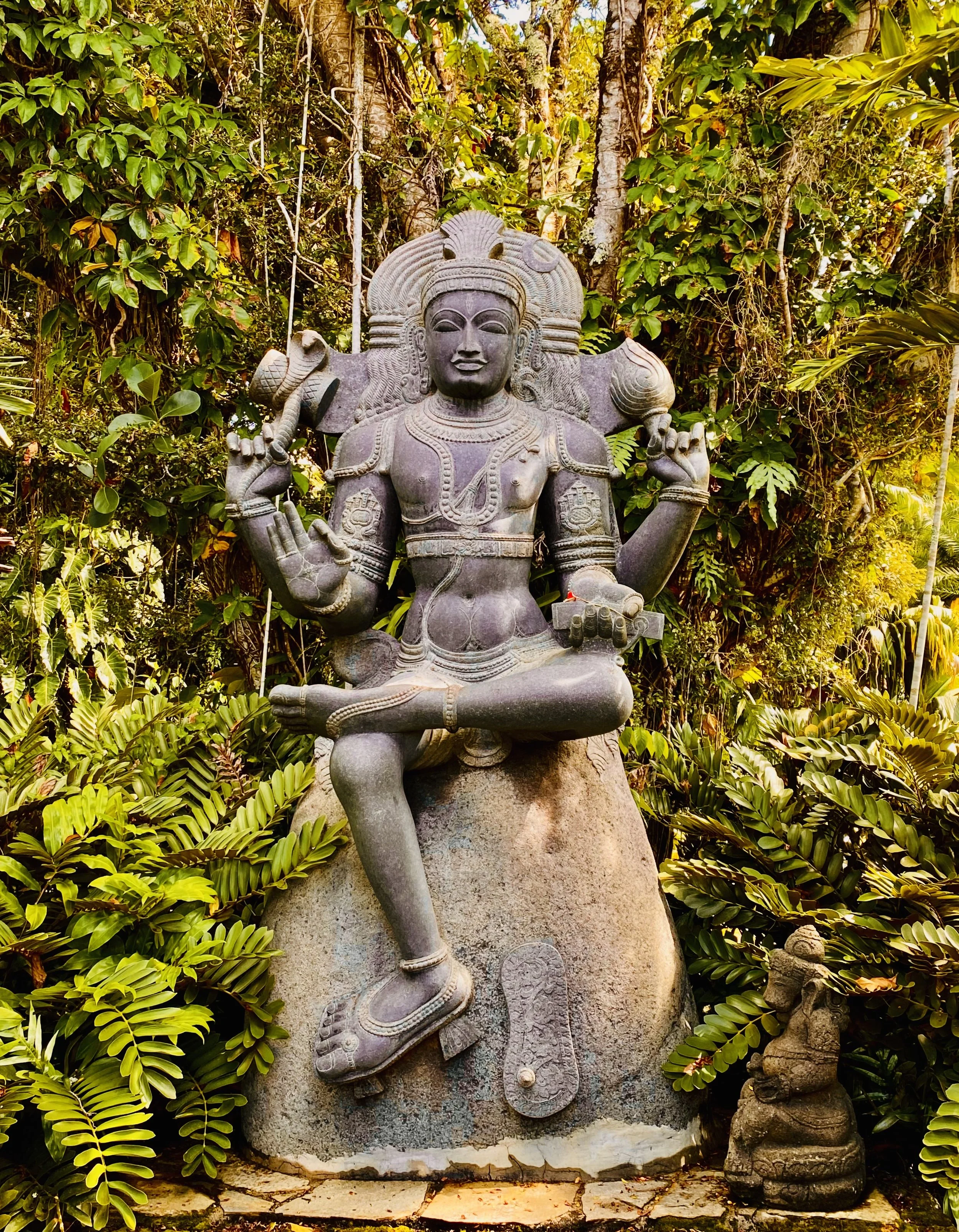
For me, as for any devout Hindu, Hinduism is one of the greatest religions—because there is a place for everyone! Hinduism teaches us to see God in everyone, reminding us that we are all the same, all divine souls created by God. It teaches us the 'opposite of hatred'—Love and Tolerance.
— Aran
Hinduism is as vast and encompassing as the sky. The Hindu belief that there is a seed of divinity in everyone makes it easier to embrace all people and view the entire world as one big family. Hence, the Hindu respects and shows tolerance toward all people, faiths, and cultures.
Hinduism, also called Sanatana Dharma, means ‘Eternal Way’ or ‘Eternal Way of Conduct’. It is the timeless set of truths, which are seen as essential for a fulfilling and balanced life by its followers. Hinduism is like a guide to understanding the higher power, world and our place in it.
In the Vedas, the sacred Hindu scriptures, God is referred as Brahman. In God and the Gods in Hinduism, it explains that the word ‘Brahman’ comes from the Sanskrit root ‘Brh’ which means to grow, manifest, expand, referring to the Brahman Mind of pure consciousness that underlies, emanates and resonates as all existence.
ABOUT HINDUISM
A verse from Rig Veda defines Brahman as —
“He who is beyond all exists as the relative universe. That part of Him appears as sentient and insentient beings. From a part of Him was born the body of the universe, and out of this body were born the Gods, the earth and men.”
God as Brahman, an all-pervasive Supreme Being, is immanent love, transcendent reality and the essence of the Self (our Soul). God has form, He fills all forms, and at the same time, goes beyond any specific time and form. He permeates everywhere, both in nature and humanity. The Vedas teach ‘Ayam Atma Brahma’, which means ‘this Self is Brahman’.
Hinduism is one of the world’s oldest and diverse religions. Its diversity is its greatest strength, showing once again its vast capacity for acceptance and inclusiveness. Many people struggle to understand Hinduism because of its vastness and highly diverse nature. It is important to know that all Hindus believe in and worship one Supreme Being, referred to by various names. India is so diverse, with so many languages and cultures, that over thousands of years, people have come to see and understand the divine power in their own different ways.
Under the big umbrella of Hinduism, there are several different belief systems and practices. They all have unique ways of worship, literature, festivals, art and philosophy. Some see God as formless, some worship Him in a male form while others revere God as female energy.
The four major denominations as defined in The History of Hindu India are –
· Saivism (Lord Siva is supreme),
· Shaktism (Goddess Durga is highest),
· Vaishnavism (Lord Vishnu is superior) and
· Smartism (they are more liberal and may choose to worship any of the three major forms—Siva, Vishnu and Durga, as well as other Divinities, especially Ganesha, Surya, and Muruga—as their preferred Deity)
Within each of the denominations, below the central Supreme God there are many Gods. In God and the Gods in Hinduism, it explains that these great Supreme Gods (also called Mahadevas), with their multitudes of angelic devas, live and work constantly and tirelessly for the people, protecting and guiding them, opening new doors and closing unused ones. These are highly advanced souls with powers to perform specific duties — such as God Surya (Sun – ruler of intellect and source of truth), Goddess Saraswati (Goddess of knowledge and learning), Lord Muruga (God of yoga and harmony), or Lord Ganesha (Lord of beginnings and remover of obstacles).
Lord Ganesha is the most popular of Hindu deities and is always worshiped first—even before the Supreme God. All Hindus worship Him, regardless of their denomination or philosophical beliefs. Ganesha, the elephant-faced Deity, protects and guides us. He is like a dearest friend—closest to the material plane of consciousness, most easily contacted and most capable of assisting us in our day-to-day life and concerns. He is especially worshiped during times of significant change, as we move from old to new beginnings. He helps by removing obstacles and making the path ahead easier.
Each denomination has some of its own unique practices, but there are some eternal truths and principles like karma, dharma, all-pervasive divinity, reincarnation, temple worship, guru-initiation, selfless service, meditation, yoga – that all Hindus believe in and follow, regardless of their denomination.
Satguru Bodhinatha Veylanswami of the Kauai’s Hindu Monastery explains that by following dharma, we can realize the True Self through devotion, worship, austerity, selfless service, yoga, and meditation. All these Hindu practices help us evolve, becoming stronger, kinder, more tolerant, wiser, and allow us to connect deeply with the divine, eventually experiencing a state of unity with the Self-God. This is why Hinduism is also referred to as a mystical religion.
Hinduism is more than just a religion for its followers, it’s a complete way of life and a key part of culture and spirituality. For a devout Hindu, his life revolves around his religion – he works and practices everything in a manner that is rooted in Hindu values. Kindness, compassion, peace, ahimsa (non-violence) are the bedrock of Hindu culture. A Hindu strives to see the divine light in every life—one of the greatest teachings of Hinduism.



